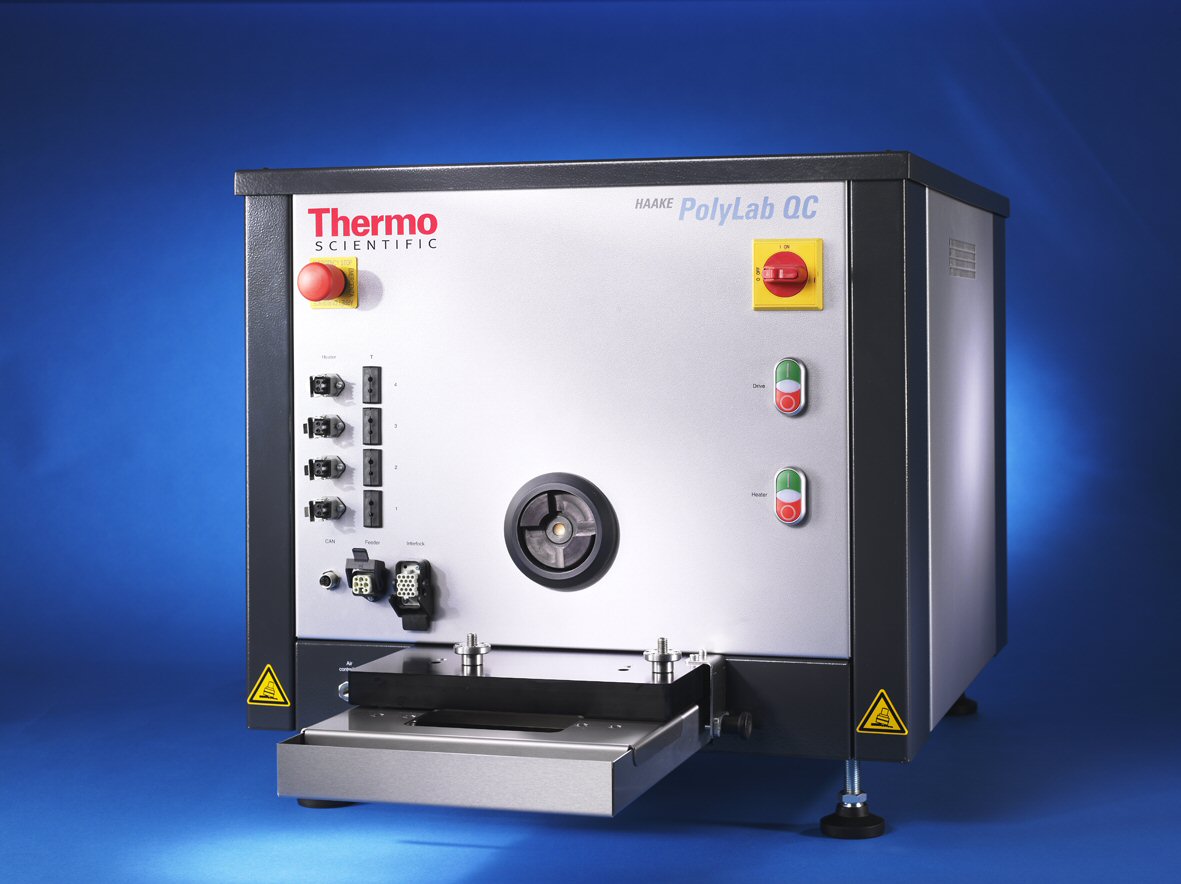Manufactured By: Thermo Fisher Scientific
The Thermo Scientific HAAKE PolyLab QC is a new measuring mixer & extruder system that meets todays and future quality control (QC) needs. The modular torque rheometer can be connected to an interchangeable mixer, single-screw extruder, or conical twin-screw extruder. Combining proven technology and state-of-the-art hardware and software with an easy-to-use interface that is the future of QC, today.
The HAAKE PolyLab QC is offered as a bench and floor model that best fits into a customer’s lab environment. The optional rack (floor model) allows moving the instrument away or even storing it if needed. Benefit from flexibility in footprint and weight!
Based on the system’s backwards compatibility, even existing measuring mixers and extruders can be connected. Most of the connections are almost at the same place as they used to be and can be connected either directly or with an optional adapter.
Single Screw & Conical Twin Screw Extruders
The most common methods in processing polymers are screw plastification and injection molding. For testing quality and processability of those materials, the single-screw laboratory extruder 19/25 QC-B is a proven tool. With over 35 years of expertise, we have developed a wide variety of different screw designs that are guaranteed to provide the best performance. Special solutions such as chemical or wear resistance are also available to extrude harsh materials.
For continuous compounding and plasticising, the Thermo Scientific HAAKE CTW 100 QC is the ideal extruder in the HAAKE PolyLab QC system.
This is a counter rotating conical twin-screw compounder, with intermeshing screws, that will give well-defined residence time for faultless production of process-critical polymers.
The gentle but intensive dispersing capabilities are ideal to mix additives and pigments. Dies and downstream ancillaries are compatible with the 19/25 QC-D single-screw extruder
Extruder Rods & Dies
To shape a polymer for further processes and tests, different dies can be adapted to the extruder. Rod dies and water bath for strand extrusion, sheet and ribbon dies in various dimensions to produce bands or cast films, and blown film dies and take off tower complete the testing equipment. Besides the standardised filter test (EN 13900-5), comprehensive rheological studies can be conducted.
Measuring Mixer
A typical mixer test is run at a defined rotor speed (shear rate). The material’s response to the shear is recorded as torque and displayed versus time. As a material’s properties are very sensitive to temperature, the mixer chamber is separated into different sections. These are individually temperature-controlled by the Thermo Scientific HAAKE PolyLab QC. Optimum temperature control quality can be achieved by an automated recognition of the connected mixer.
Although the temperature of the mixing chamber is constantly controlled, the material’s melt temperature during a test may rise due to the shear introduced. The melt temperature is also recorded during the test by a separate thermocouple. The recorded “Rheogram” (torque and melt temperature vs. time at constant speed) is characteristic for different material types and blends. It can be used as a fingerprint in quality control for outgoing and incoming product inspections. As changes in torque are related to structural changes in the material, a Rheogram can be used to investigate and verify reactions of different additive types or concentrations on the sample’s melting behavior.
Typical Investigations
Measuring Methods
Capillary Viscosity
Measuring Options
Mixing, Kneading, Compounding, Plasticising
Additional Product Information:
| Item | Size | Download |
|---|---|---|
| Product Brochure | 467kb | Download |
| Product Specifications | 357kb | Download |

